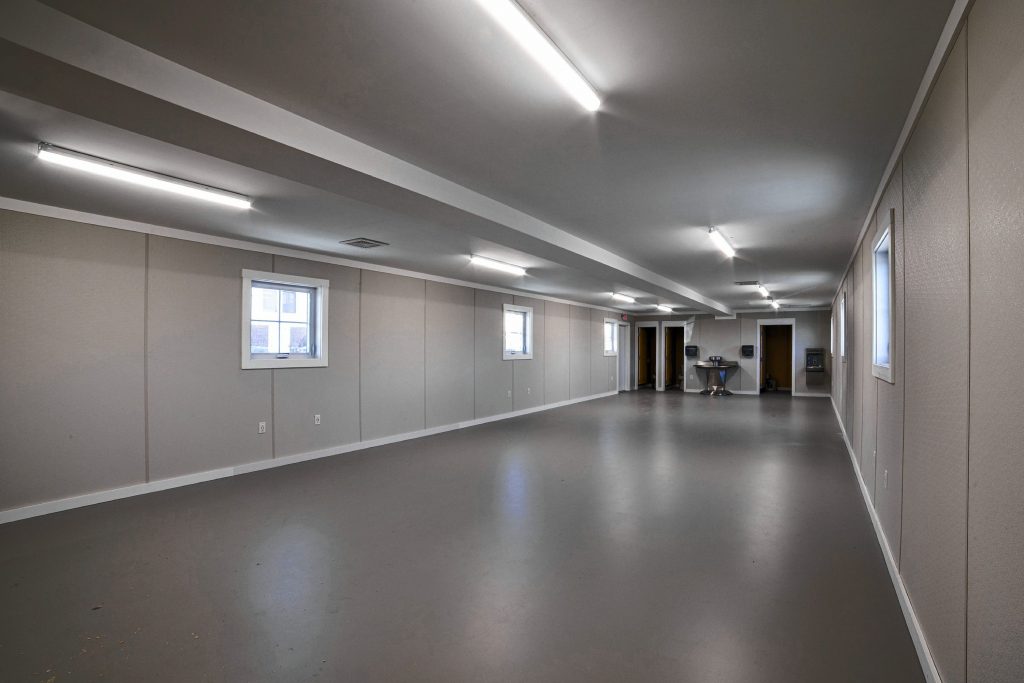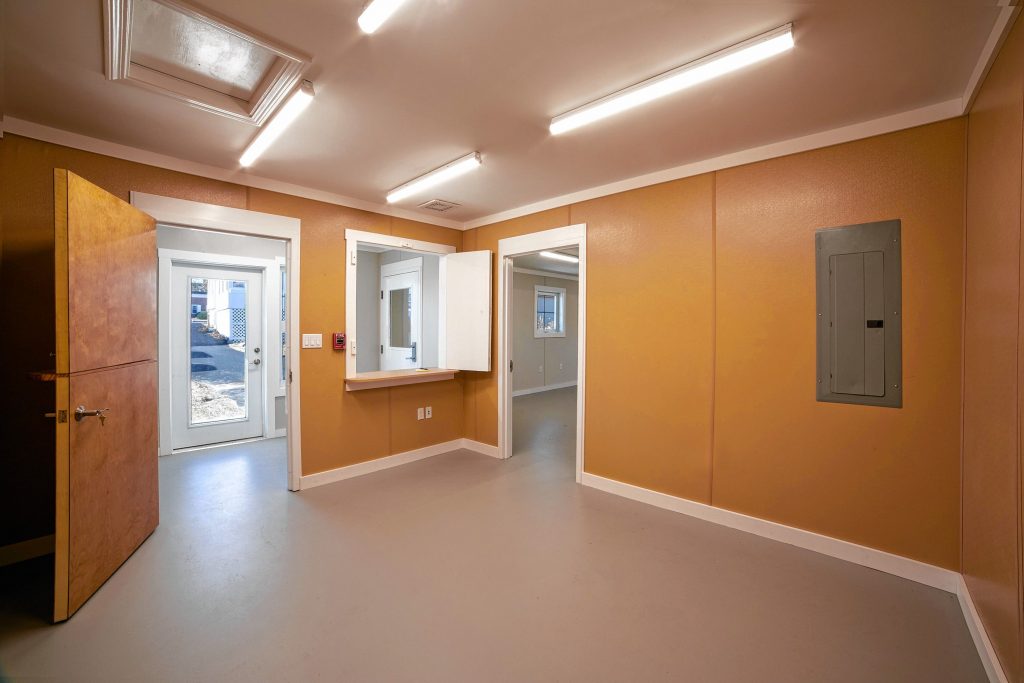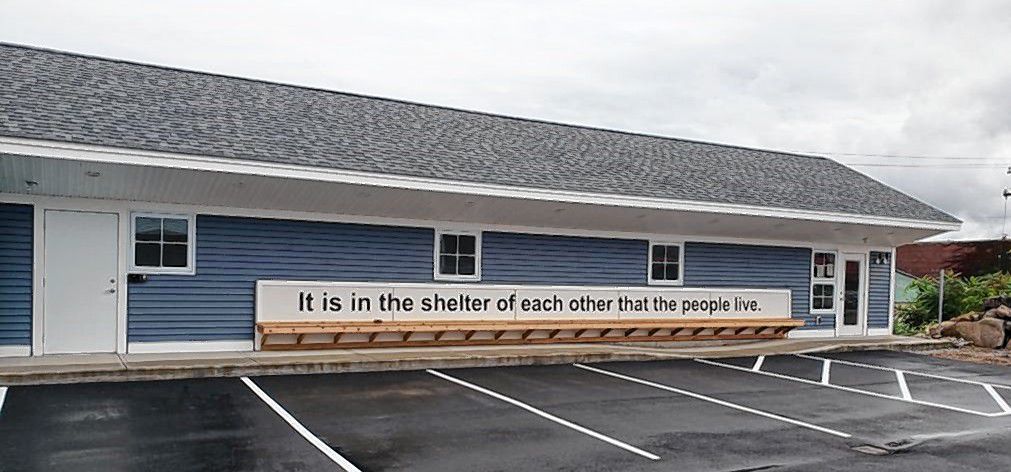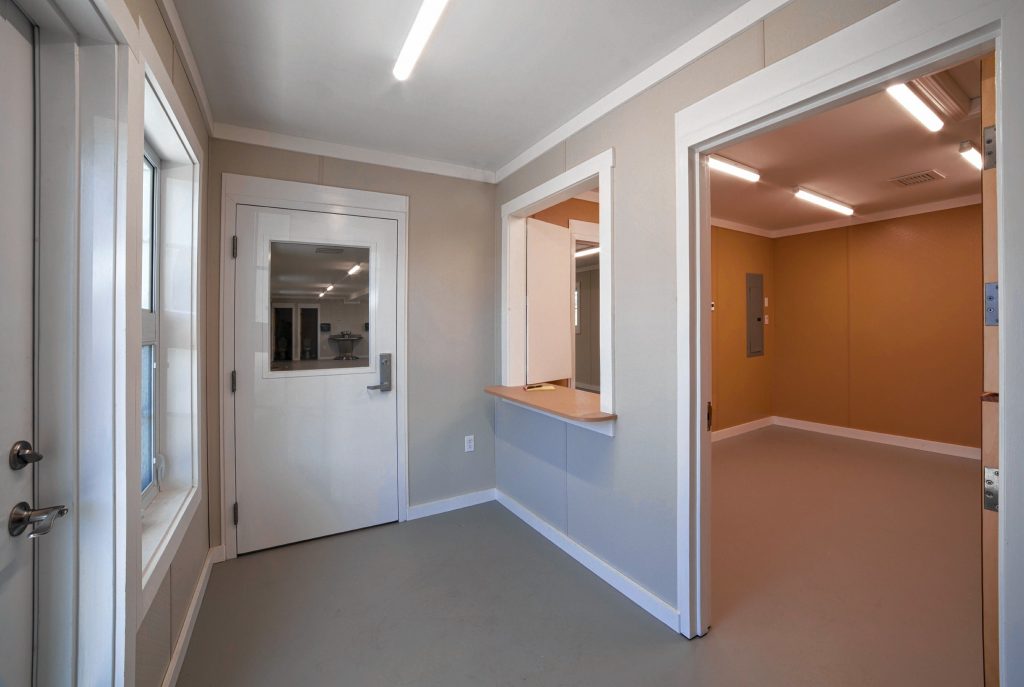Now that the most vulnerable people experiencing homelessness in Concord are assured of having shelter during frigid winter nights, the coalition that built the facility is eager to turn its attention to more-permanent solutions.
The Emergency Winter Shelter, built by the Concord Coalition to End Homelessness at 238 N. Main St., will open Dec. 17 with 40 beds. CCEH and Thrive Outdoors will manage the shelter.
“The completion of the Emergency Winter Shelter is a blessing in several ways,” said CCEH Executive Director Ellen Groh. “First, it’s a safety net for some of Concord’s most vulnerable residents. Second, its completion allows us to shift our focus to our core mission; ending chronic homelessness in Concord by expanding the Housing First model of permanent supportive housing.”
Housing First, a proven model for ending homelessness, is centered on the belief that stable, permanent housing is the foundation for achieving other health or social service goals.
“What is generally not known,” added Groh, “is that Housing First not only increases the health and well-being of those served, it also makes economic sense for the community. Providing housing and caseworker support can cost less than having a person remain on the streets!”
An individual experiencing chronic homelessness can cost a community between $30,000 and $50,000 per year through the extensive use of public services, such as shelters, hospitals, emergency rooms, jails and prisons. It costs approximately $12,000 to $15,000 to provide an individual with housing and support through Housing First.
Housing First is centered on the belief that people who have been chronically homeless can achieve stability when they have permanent housing, supported by health and social services. Three U.S. locales, including Bergen County, N.J.; Lancaster, Pa.; and Rockford, Ill.; have successfully ended chronic homelessness.
In addition to the Emergency Winter Shelter and the Housing First Concord program, CCEH operates a daytime resource center that helps with guests’ immediate needs, such as shower, laundry, computer access and a place to receive mail. A caseworker helps guests connect with housing and other resources, and other agencies, including the Concord Hospital Downtown Clinic and Riverbend Community Mental Health, provide services for resource center guests.
Equally important, it is a place where people struggling with homelessness are treated with dignity and respect.
“The Concord community is extremely caring and generous, and CCEH would not be able to do this work without the support of this community,” Groh said.
CCEH’s vision is a Concord community where everyone has a safe, decent, stable and affordable place to live.
For more information, visit concordhomeless.org.
Greg LessardConcord Food Co-op













December 8, 2018
That is awesome good cause I am going to be coming to Concord and am going to need this for sure..